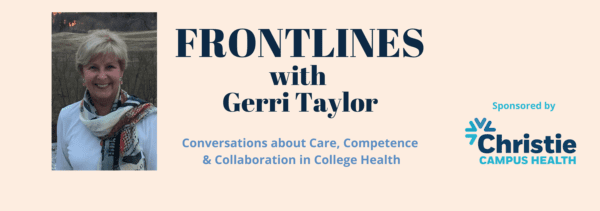The transition from college to early career is a critical period of identity formation marked by joy, fear, and loss. To be experiencing all this during a global pandemic that changed everything you were expecting is hard to imagine even for those of us who remember the difficulties of our early twenties.
While it is likely no one on earth will forget 2020, the graduating class of this turbulent year will be forever changed by it. Not only did COVID-19 take away rights of passage like senior week and commencement ceremonies, it made what can be a tough transition even harder with remote first jobs, few opportunities to create new communities, and a poor economy that stoked fears from the great recession. And that is what the more fortunate have faced.
For graduates of color and those with lower income backgrounds, the pandemic took a higher percentage of family jobs and a disproportionate amount of deaths while the racial reckoning caused by persistent and tragic racism added additional layers of stress and trauma. Evidence is showing the tragic impact of last year on young lives.
According to a June 2020 study by the Center for Disease Control, adults over the age of 18 reported considerable elevated adverse mental health conditions associated with COVID-19. Younger adults, and racial/ethnic minorities, among other groups, experienced disproportionately worse mental health outcomes.
Experts are wondering why the age group least at risk of serious illness from the pandemic are experiencing the worst affects from it on their mental health. One hypothesis is that the mental health of emerging adults was already increasingly vulnerable, as was the mental health for those making the journey from college to career which, for some, can feel more like a cliff than a bridge. Changes in support networks, pressure to earn money, and the loss of community are just some of the pain points that already existed for this group.
“Senior year is just a super stressful time,” said Christopher, a 2020 college graduate who started his first job online and moved home to save money. “It’s all a bunch of question marks that are scary for everyone. The uncertainty of what happens when you graduate, the pressure of getting a job, and either moving to a new city or moving out on your own and adjusting to not being in college with all of your friends, it all collides at the same time and it becomes very, very stressful.”
According to a 2018 report by the JED Foundation and UMass Medical School, three out of 10 young adults reported a diagnosis of anxiety (college seniors 32%; recent grads 27%) and 2 out of 10 young adults reported a diagnosis of depression (college seniors 22%; recent grads 23%).
The report showed students are negatively impacted by pressure to succeed and fear of the future.
“Eighty-six percent of college seniors, including 92% of female college seniors, feel pressure to succeed in the professional world. Relatedly, nearly 90% of recent graduates feel pressure to be financially secure. Among all of these pressures, the majority of college seniors note they are scared to enter the real world (60%), are jealous when they hear their peer’s post-graduation plans (57%), and have difficulty making decisions for their future when it seems there are so many different options.”
“There is a lot of pressure from parents and your peers to get a job even before you graduate,” said Christopher. “Whether it’s a job or grad school, the heat is on you to be doing something right away. The days of ‘I’m just going to graduate and figure out what I want to do’ are definitely over.”
He says the pressures felt by many can lead to spiraling mental health problems for some.
“The stress and shock and existential angst we’re all feeling can lead some people into a depressive state and I’ve seen it happen. Say you had an awesome four years of college and you took a job because you felt you had to and you moved away or you moved in with your parents and then you realize, ‘I hate this job and I don’t know how to get out of it. I put so much time and energy into this major so I could get this job and I don’t know how to change directions. I was so much happier six months ago.’”
Theories abound as to the source of this distress and include the lingering hold of the recession of 2008, which accelerated the propensity to evaluate college simply by its return on investment. The comparative culture and instant gratification brought on by social media no doubt plays a role. One thing is certain, the stakeholders on the receiving end of all this are the employers who are increasingly concerned about the mental health and preparedness of their entry-level staff, now more than ever.
Brooke Smith works for Anthem, Inc. as University Relations Program Manager, recruiting interns and entry-level employees for the national health insurance company. Just a few years out of graduate school herself, Smith is keenly aware of the mental health challenges of students leaving campus for careers. She says the company works hard to promote mental health and wellness resources.
“We call this period ‘backpacks to briefcases’ and we talk a lot with our young recruits about the importance of taking care of their mental health,” said Brooke, who shared that she also suffered from depression in and after college.
“It is pretty easy to see how it happens. In college, everything is intentionally built-in – your dorm, your dining hall, your friends. Then everything becomes more real when you graduate, like paying bills, worrying about your student loans, your health care, on top of making connections, being in a new city, a new culture; those are all things that contribute to your mental health.”
Smith says many millennials and Gen Z graduates get caught up in the allure of moving to what she calls “sexy cities” like LA, Miami, and New York.
“These seem great on social media but then you get there and you’re alone, and it’s hard to make friends, and your entry-level salary is not enough to live the lifestyle you thought you would so you worry all the time about making rent and paying student loans.”
Smith says that working remotely due to the pandemic’s stay-at-home mandates makes all of this even worse.
“You used to be able to finish work and go get a drink or dinner which helps with the loneliness. Now, after work, you just stay home.”
Judith M. Marie is a consultant for Longpoint Consulting, a Boston-based consulting and coaching firm which works with HR departments in higher-education and corporate/non-profit settings. She says employers are particularly concerned about how the COVID-19 pandemic is affecting an already vulnerable group of employees.
“This younger generation is already prone to anxiety and depression, many of them are medicated and talk openly about that. Now you’ve got these young people who’ve experienced an enormous amount of loss, many are back with their parents trying to find jobs or working from their bedrooms. This isn’t what they expected when [they] envisioned embarking on a career.”
The ones who have found work are doing so remotely. While she says her clients are grateful for the technology that allows work to continue, both employers and employees are experiencing significant drawbacks from connecting exclusively by screen or phone.
“I think what these young workers are missing out on is enormous,” said Marie. “Many are working with people they have never even met. They are missing that sense of identity you get as colleagues and meeting new friends. Many of them feel terribly isolated, so many say all they do is work.”
This workplace isolation adds to the challenges of navigating first-time professional life, be it a technology issue, understanding protocols or learning the basics such as the culture of an organization. Marie says struggles like these that could have easily been solved with a subtle wave to a co-worker or a quick hallway conversation can now pile up.
“I think what these young workers are missing out on is enormous,” said Marie. “Many are working with people they have never even met. They are missing that sense of identity you get as colleagues and meeting new friends. Many of them feel terribly isolated, so many say all they do is work.”
Christopher offers an example. “You might get your computer and your monitor shipped to you and you don’t know how to set them up and you’re too insecure to ask anyone because you already feel stupid. Then you get insurance information and 401K plan option and you’re like ‘what’s this? I know nothing.’”
Marie coaches managers to be vigilant in reading body language on computer screens. Ramping up outreach to young employees by repeatedly asking if anyone has questions and scheduling one-on-one check-in calls/meetings is essential. She recalls one manager who noticed someone on his team had become disengaged during their Zoom calls and later learned, after making a follow-up phone call, that the employee’s grandmother was hospitalized with COVID and unlikely to recover.
Feelings of disconnect and insecurity can be even more acute for new professionals of color who, in addition to sharing what all their white peers are experiencing, have endured a year with painful reminders of racism – from the death of George Floyd to the racist undertones of the 2020 presidential election. In its Crisis Response Task Force, The Steve Fund, a research organization which focuses on the mental health of college students of color, provided recommendations for both colleges and employers to help recent graduates of color navigate the transition to the workplace under these circumstances.
Among their recommendations for employers is to conduct a workplace culture and practices assessment with a 2020 lens. “Recently added stressors require a review of company policies and practices through the 2020 lens of COVID-19, social injustice and work-from-home. Worries arise from experts about the exacerbation of risks to wellbeing and success in the current context. For instance, with fewer connections and less extensive networks than white colleagues to begin with, Black and Hispanic workers can find themselves more isolated than ever in a world of Zoom calls and virtual forums.”
The JED Foundation also offers recommendations to both colleges and employers that help create a better emotional bridge from one world to the other for all students. These include forging a stronger connection between campus career counselors and professional on-boarding processes, ensuring colleges help students access community counseling and navigate the insurance changes that come from leaving campus; for employers, promoting a culture of well-being and help-seeking at the office with multiple access points and resources, and formalizing on-the-job mentoring for first-year employees.
A more philosophical question involves societal pressures and campus cultures that perpetuate career goal anxiety. The evidence on financial stress should prompt administrators, particularly at liberal arts institutions, to emphasize learning, growth, and wellbeing as important end goals to their higher education trajectory.
It is too soon to tell how the circumstances of 2020 will continue to impact the emotional and behavioral health of last year’s graduates. As they approach their one-year anniversary from leaving college, Christopher and his friends acknowledge the pros and cons of the circumstances they were dealt. Many found riding out the pandemic in their parents’ house a comfortable way to delay the inevitable. But, as experts agree, this comes with a price.
“If I had graduated in 2019, I would have been over all this by now,” Christopher said. “I would have been at an office, going out with friends after work; I would have adjusted, maybe in a new city, and I would have been like ‘OK, this is my life now.’”




